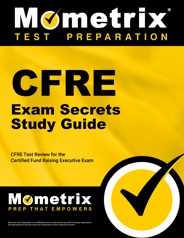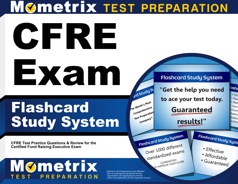The Certified Fund-Raising Executive (CFRE) Exam is the only accredited certification exam available for fund raising professionals. It measures a candidate’s knowledge and skills according to a strict set of professional and ethical standards. While not mandatory, getting certified is a great way to set yourself apart from other candidates, qualify for pay raises and job promotions, and just generally demonstrate your success in this career.
Who Is Eligible to Take the CFRE Exam?
Before you can even register for the CFRE exam, you will need to demonstrate your eligibility to take it.
The application process is done using a point system within three qualifying categories: professional practice, education, and professional performance. In order to be eligible for certification, you’ll need to have a certain number of points in each of those three categories.
If that sounds complicated, don’t worry. Here’s a quick outline of the point requirements in each category and what kind of experience, educational background, or milestones will earn you points in those categories:
- Education – 80 points needed
- 1 point per hour spent attending educational sessions or workshops.
- 2 points per hour spent teaching educational sessions or workshops.
- 3 points per hour spent teaching educational sessions or workshops using newly developed material.
- 5 points per article published (not including self-published).
- 5 points for an AA degree in a relevant field
- 10 points for a BA, MA, or PhD degree. If you have more than one of these, they count as 10 points each. For initial certification, this includes degrees earned more than 5 years ago.
- 2 points per year of volunteer leadership role.
- 1 point per instance of general volunteer service (up to 10 points).
- Professional Practice – 36 points needed
- 1 point per month of full-time employment in a position where at least 50% of your job duties include fundraising activities, resource development, and/or management of fund development.
- You may also earn 1 point per month of part time employment as long as a full 100% of your job duties include those listed above.
- Professional Performance – 55 points needed
- 1 point per $25,000 raised (or equivalent in local currency)
- 5 points per communications project which had a measurable impact on the success of fundraising for an organization.
- 5 points per management project which had a measurable impact on the success of fundraising for an organization.
All points must be based on achievements or qualifications from within the past five years. Once you’ve proven that you’ve scored enough points on the application, you’ll be able to register and prove that you can also score enough points on the actual exam!
Which Subjects Are Covered on the Test?
There will be a total of 200 questions spanning six key domains of professional fundraising. See the breakdown below of how the questions will be divided across domains:
- Current and Prospective Donor Research – 15%
- Securing the Gift – 22%
- Relationship Building – 29%
- Volunteer Involvement – 6%
- Leadership and Management – 18%
- Ethics, Accountability, and Professionalism – 10%
You will have four hours to complete the entire exam, giving you a little over one minute per question so make sure you practice your speed and accuracy in test taking as you prepare for the test.
How Is the Exam Scored?
Your raw score (actual number of correct answers) is converted into a scaled score ranging from 200 to 800. You need to get a scaled score of at least 500 in order to qualify for certification.
How Much Preparation Do I Need for the CFRE Exam?
This exam is long and rigorous. Moreover, the exam fee is nothing to scoff and retakes are not cheap. So, it is extremely important that you schedule an appointment that still leaves you plenty of time to review all the material, sharpen your test-taking skills, and get ready to ace this test.
How much time you need will depend on how familiar you are with the content you’ll be tested on. It’s a good idea to take a diagnostic exam before you register to get a sense of where you’re at. Then, make a reasonable study plan that would get you where you need to be. Then schedule your appointment for a date that leaves you time to complete that study plan.
Once you’ve got your plan in place or even if you need help creating a study plan, pick up the Mometrix Study Guide as well as the Mometrix Flashcards that go with it. These study aids provide example study plans and study tips that will help ensure you are getting the most out of your study sessions. You’ll also get a comprehensive overview of each of the six domains included in the exam.




